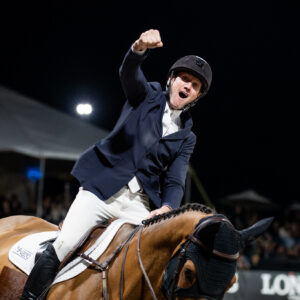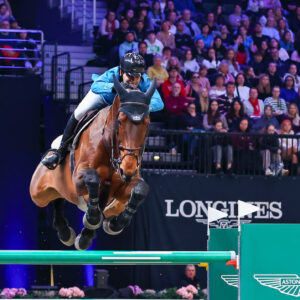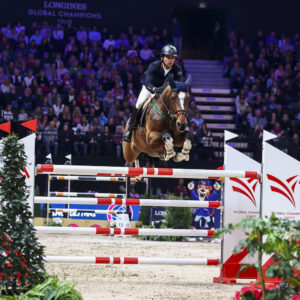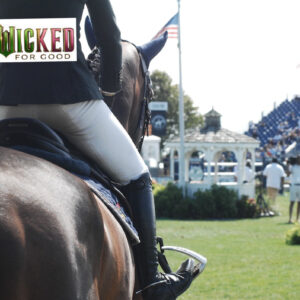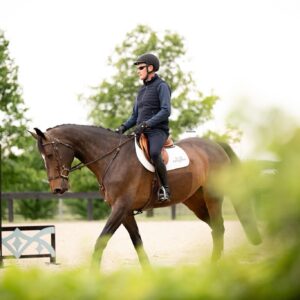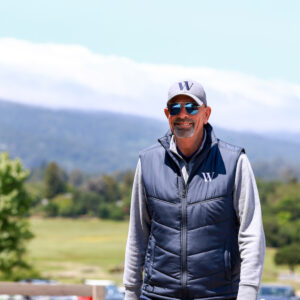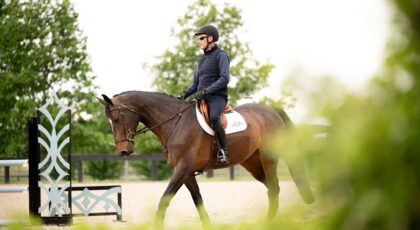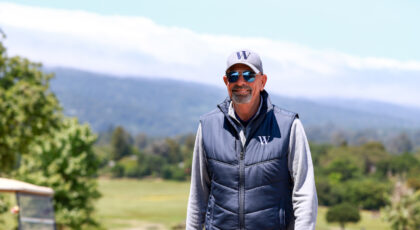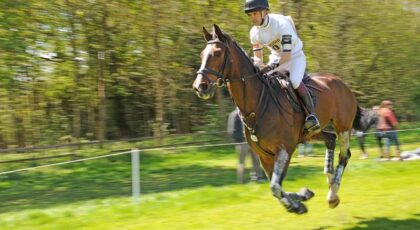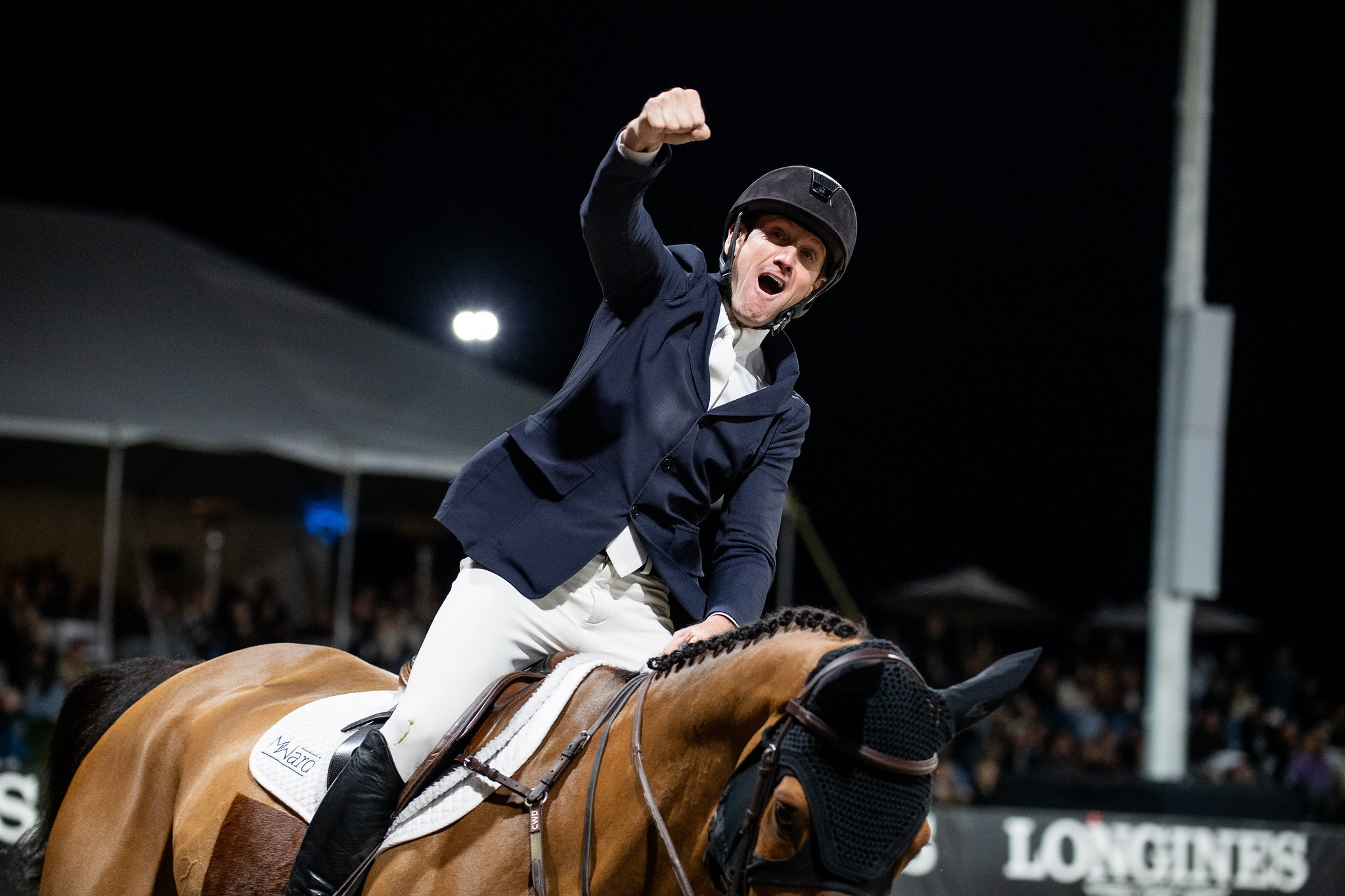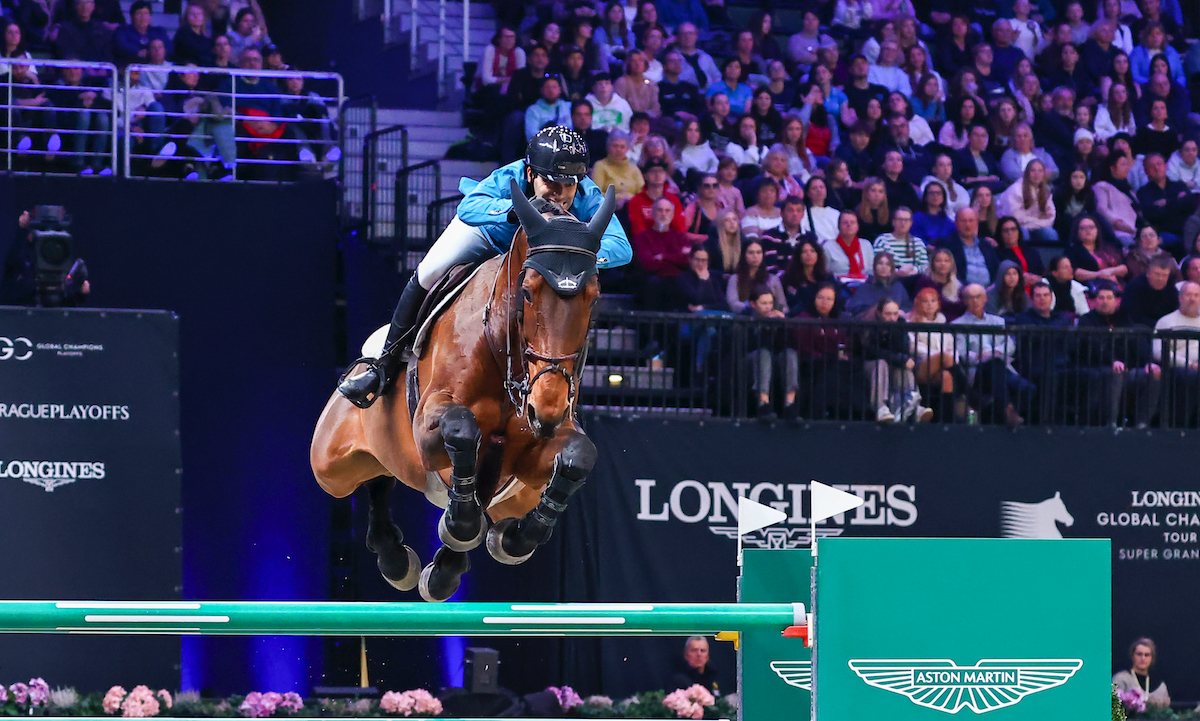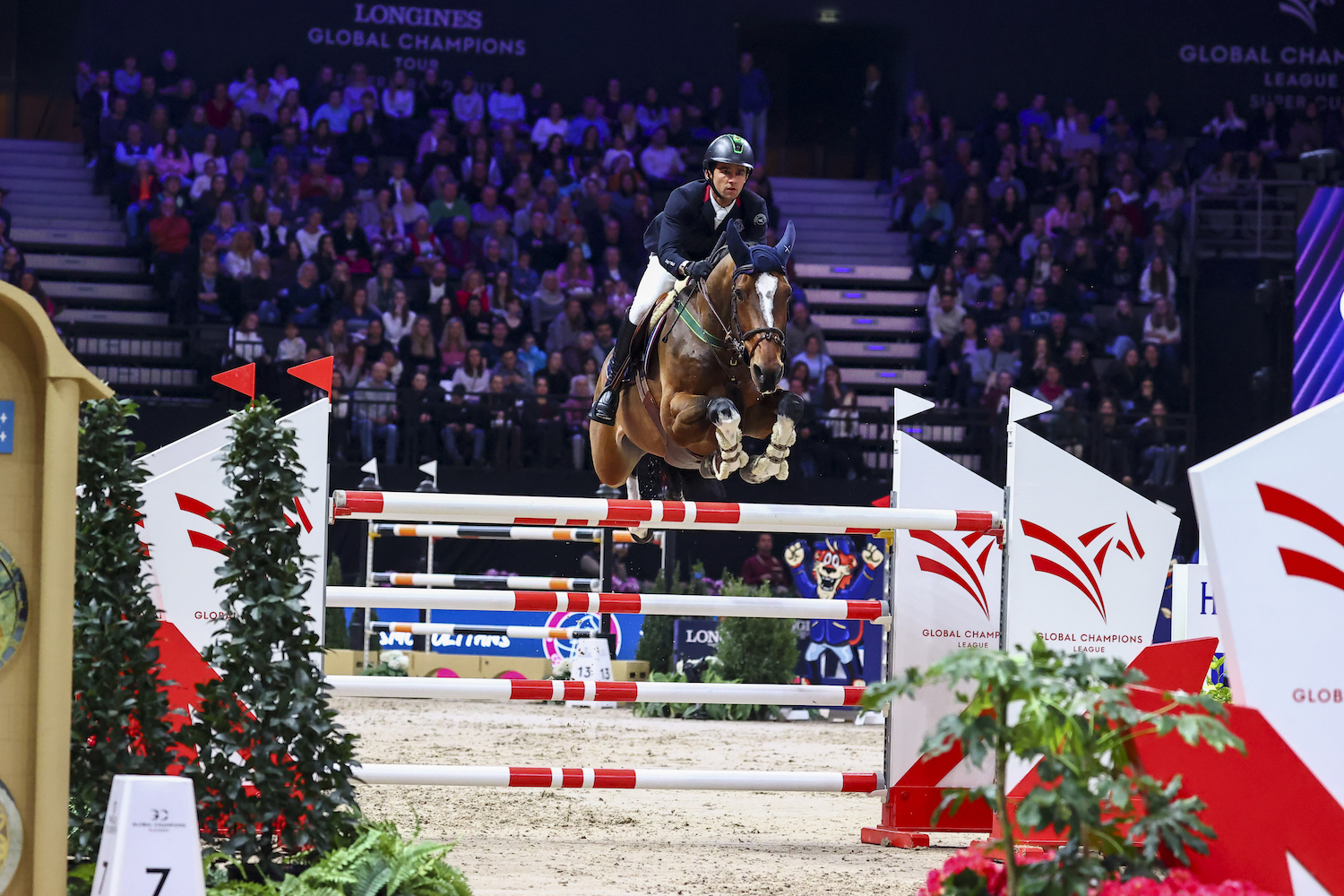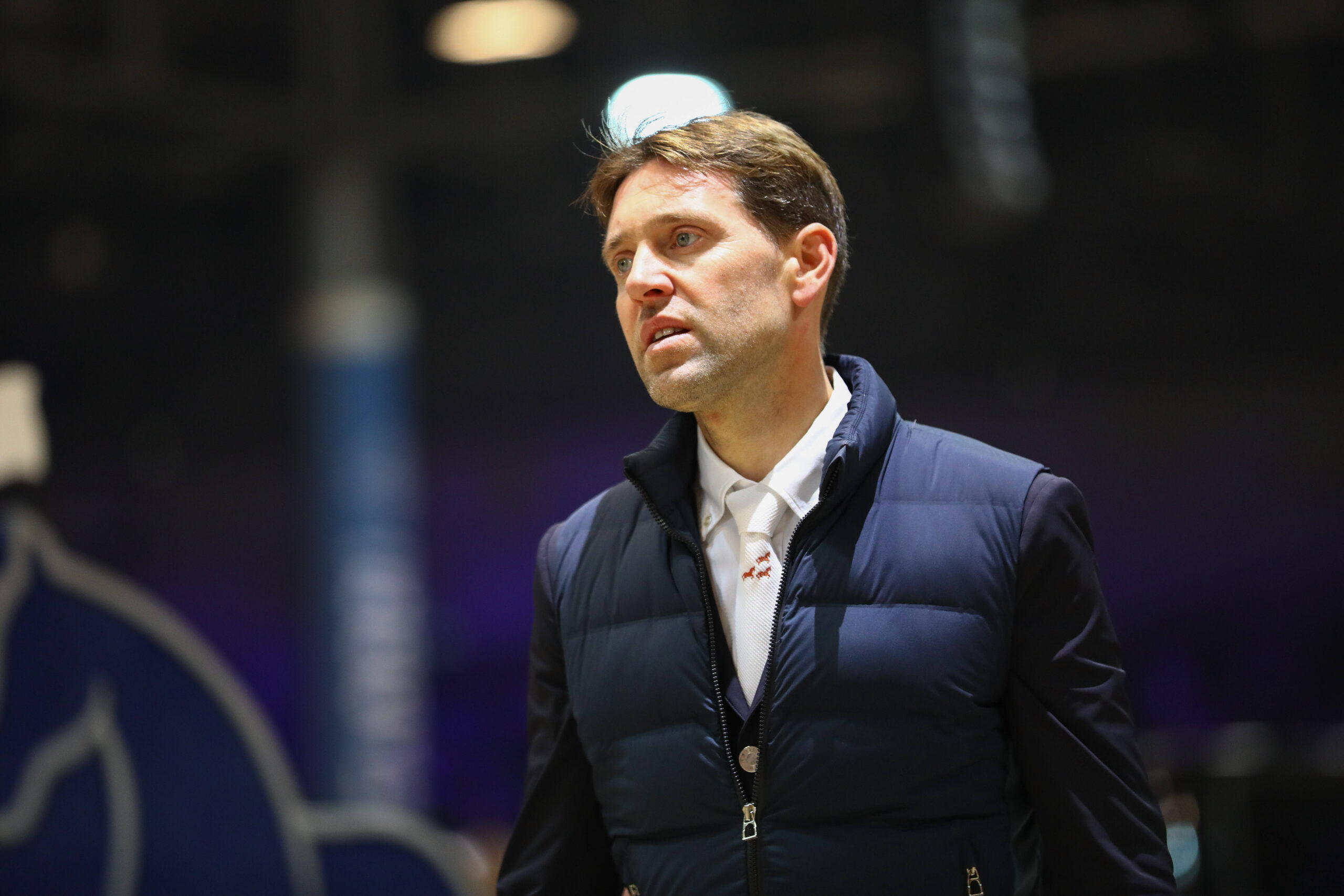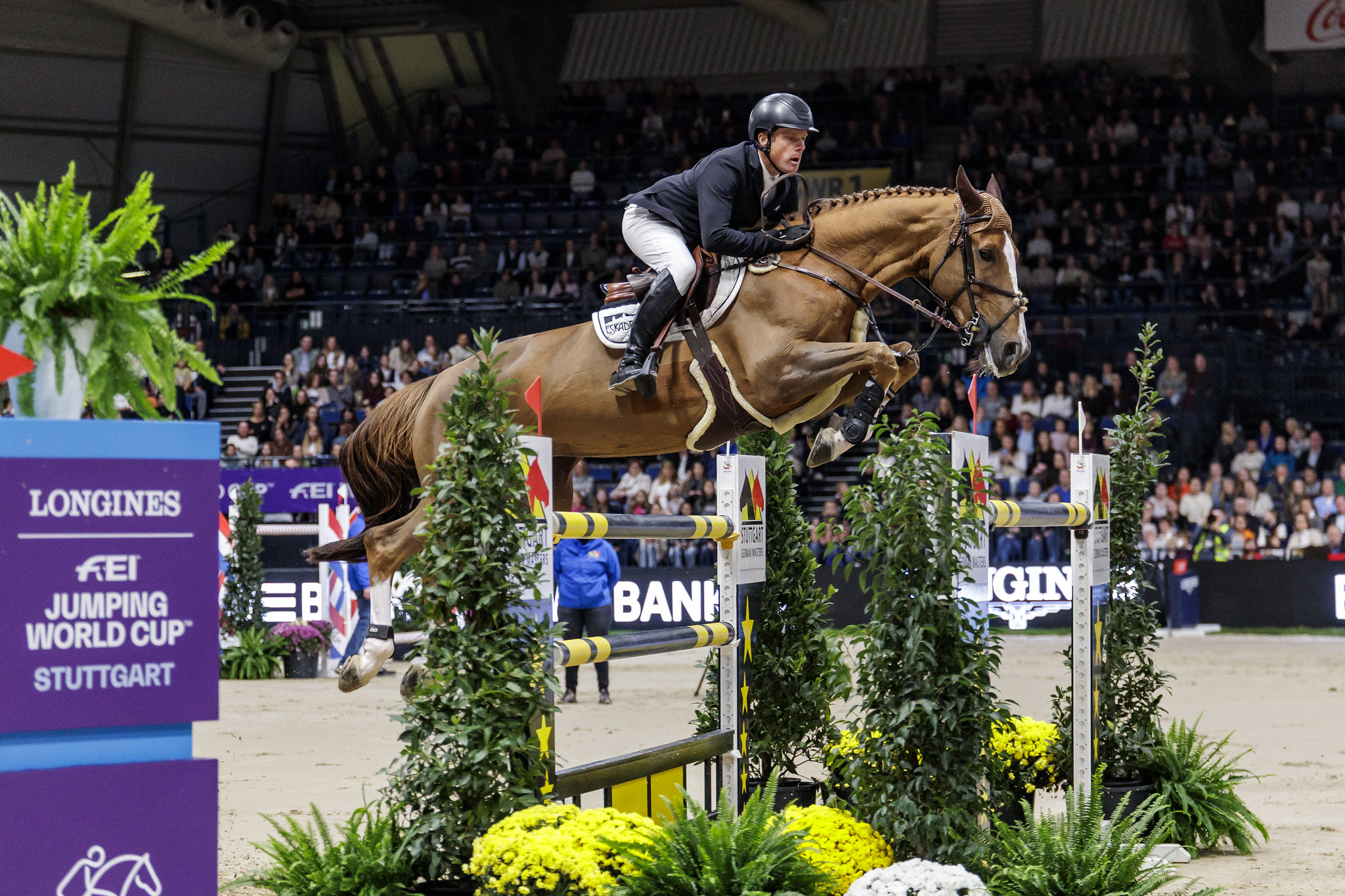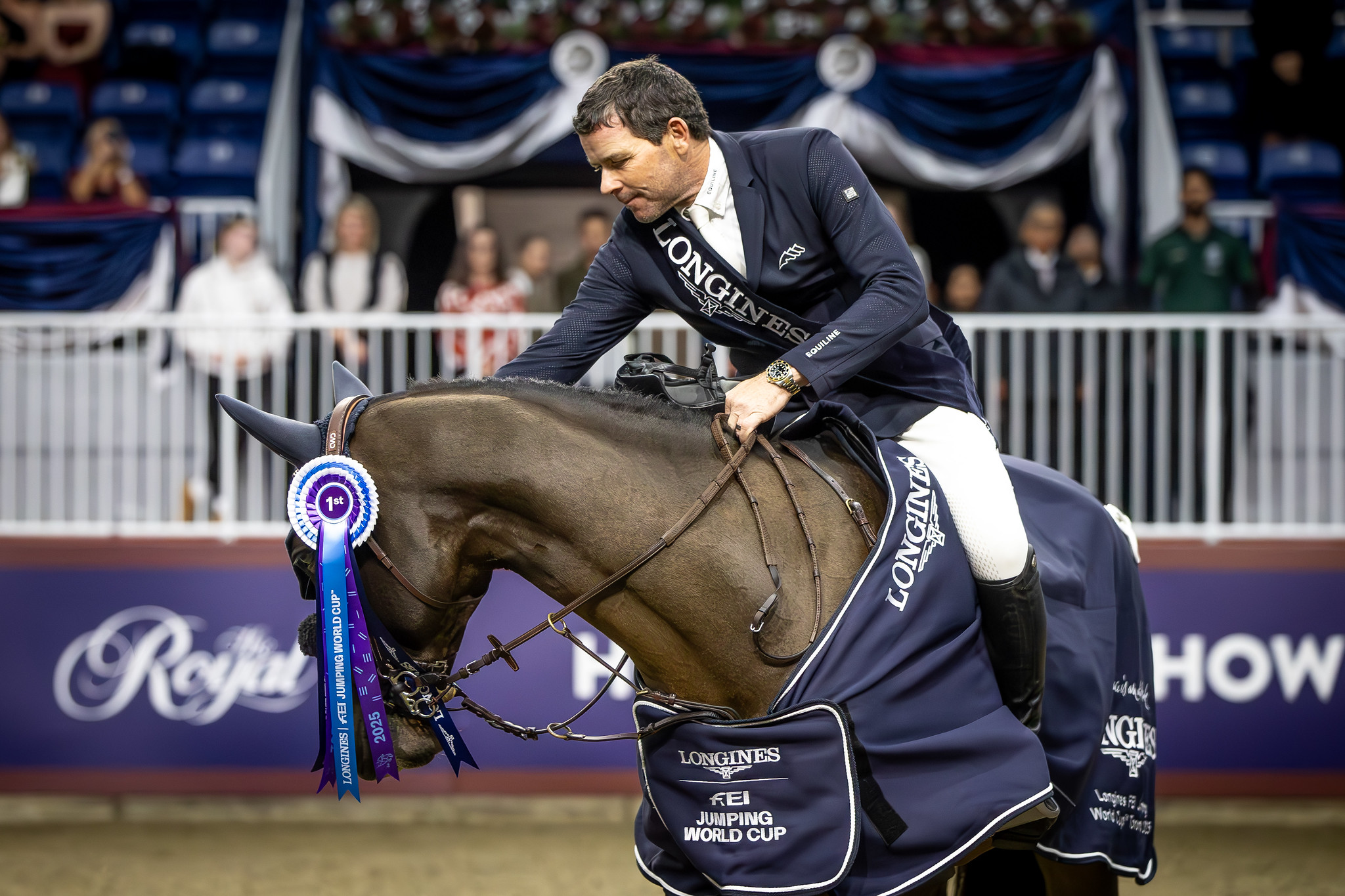Trigger warning: This story discusses disordered eating.
You know her by voice. This is her story. Multimedia journalist and equestrian sports commentator Catie Staszak sat down with Caroline Culbertson and the Horse Person Podcast to share her personal battle with an eating disorder and how horses ultimately helped her heal. This episode is sponsored by Connaway & Associates Equine Insurance Solutions Inc.
To say I’m a goal-oriented individual might be the understatement of the century.
I’ve been incredibly fortunate to know what I wanted to do from a young age. But when I was 14, sharing my goals with my trainer at the time proved to have grave consequences.
I grew up riding at a local stable in Delray Beach, FL, and learned strong basics from the riding program there. However, it wasn’t the most growth-fostering of an environment. The instructor socialized with the students quite a bit, and it was clear who her favorites were. I longed to be a part of their group. More importantly, I wanted my riding ability to be noticed.
The year was 2006 and the Animal Planet reality series Horsepower: Road to the Maclay had just come out. I was in awe of the equitation division—and Brianne Goutal and Logan. I set my mind firmly on reaching the ASPCA Maclay National Championship, despite having never ridden in a “Big Eq” class.
I memorized all 19 tests in the USEF Rulebook at the time and practiced them daily. I rode without stirrups, studied the equitation point system, kept up with the BigEq.com equitation index, and searched the Internet for equitation horses for sale (that I could not afford). Prepared with knowledge, I entered my trainer’s office, asking her if we could talk about goals. When I shared with her what I aspired to do, she shot me down faster than anyone had before.
“You don’t have the name or the money to go to Maclay Finals,” she told me.
I was gutted. And I began to replay the statement in my head. It would take on a life of its own.
If you’re a riding instructor or trainer reading this, know that your words have power—especially with a highly impressionable 14 year old.
I worked tirelessly to earn permission to ride in a Maclay class, and finally, my trainer relented. I was fourth in that first outing, earning my first points. But my trainer wasn’t particularly keen to continue with the endeavor.
My mother recognized that it was time to move on to a program that more regularly pursued the equitation divisions. When she called one well-known farm in Wellington, the message she received was similar to what I’d gotten: You don’t have enough money to ride with us.
I internalized all of this with a plummeting sense of self-worth. In my mind, I wasn’t good enough. And I punished myself by denying myself the most basic of needs: food and water.
It had always been instilled in me to take care of my horse before myself. So, my horse always got cooled off before I did. But I began to take that to an extreme. If I didn’t ride well enough in my mind, I didn’t allow myself the “reward” of a drink or snack.
That would evolve into an extreme control issue. While I never skipped a meal, my portions greatly diminished. And as someone who is petite to begin with—and rode most often in the heat of the Florida summers—the pounds began to melt away.
Two riders I looked up to at my barn had already moved on to Castlewood Farm in Wellington, FL, to train with Alan Korotkin and Susan Tuccinardi. I idolized them, but in my mind there was no way I was good enough to join them. It was my mother who insisted otherwise and finally convinced me to meet with them.
When I sat down with Alan in his office, he asked me about my goals. And when I told him I wanted to go to Maclay Finals, the response I got was very different from what I had heard before. “Great, we’ll get you there.”
He was so confident—nonchalant, even. I was shocked. Here was a trainer that believed in me.
Unfortunately, I still didn’t believe in myself.
So while I was suddenly in the program I wanted to be in, I constantly compared myself to the more experienced riders and the girls with more financial resources. I felt that I had to work twice as hard to be as good as they were. I took every opportunity to ride extra horses and help out around the barn. But I did not fuel myself in proportion to the amount of energy I was expending.
Nearly 20 lost pounds later, I was no longer strong enough to ride. I nearly fainted in the saddle at a horse show and did in fact pass out once at home. My parents made the difficult decision to send me to an out-of-state treatment center after my 16th birthday. There went Maclay Finals. There went everything.
I spent 60 days at the treatment facility, and while the counselors determined riding to be the root of my problems, it was horses that saved me.
The center had an equine therapy program, and I lived for those two days each week to be around horses. At 16, 60 days feels like a lifetime. There was a point where I felt in my heart of hearts that I would never actually get out of there.
When I finally reached the end point, counselors recommended I transition to a different outpatient program—one that did not have horses. I begged my parents to instead let me come home and try to ride again. I’m still not sure why, but they did. I am so incredibly grateful for their trust and belief in me.
Returning home, though, was difficult. When you leave looking like a skeleton and return looking like a healthy human being again, the change is pretty noticeable. Back at high school, kids stared me up and down and whispered in the hallways. It was a rough time.
Again, horses kept me going. I determined not to relapse, because I wanted to be strong enough to ride. I qualified for Medal Finals the next year, and in my last junior year, I made it through Regionals and achieved my goal of reaching Maclay Finals. I did it, despite losing several months of my life.
I carried the shame of my experience with me for many years—it was a secret that loomed over me and a heavy burden. I told myself that if I somehow managed to reach the Grand Prix level of the sport, I’d share my story. Maybe part of me thought that it wouldn’t happen, but I wanted to hold myself accountable. At long last, and after navigating several other kinds of hurdles, personal and financial, I achieved that goal earlier this year.
Now I’m setting new goals.
I am incredibly grateful that—more than 15 years after I returned from that treatment center—I can live my life without worrying about an eating disorder. I feel empowered by the ability to try new foods, eat on any schedule, and put ketchup on my French fries. And I’m strong in the saddle.
Eating disorders are silent killers, and the social stigmas surrounding them, along with a lack of public understanding, keep many people from talking about this topic, but an eating disorder is in fact a disease. Since sharing my story, I have been overwhelmed by the response from others who have had similar experiences, and I hope I can use my platform to let others struggling know that there is a light at the end of the tunnel.
It’s amazing what you can achieve when someone believes in you—and when you believe in yourself.
For more on Catie’s journey to the FEI Grand Prix ring, her dad’s battle with Parkinson’s and more, listen to her full interview on the Horse Person Podcast. This episode is sponsored by Connaway & Associates Equine Insurance Solutions Inc.
If you or someone your know has concerns about disordered eating, contact the National Eating Disorder Association for support, resources, community events, and to take their free (and anonymous) eating disorders screening at nationaleatingdisorders.org.


 September 18, 2025
September 18, 2025 






